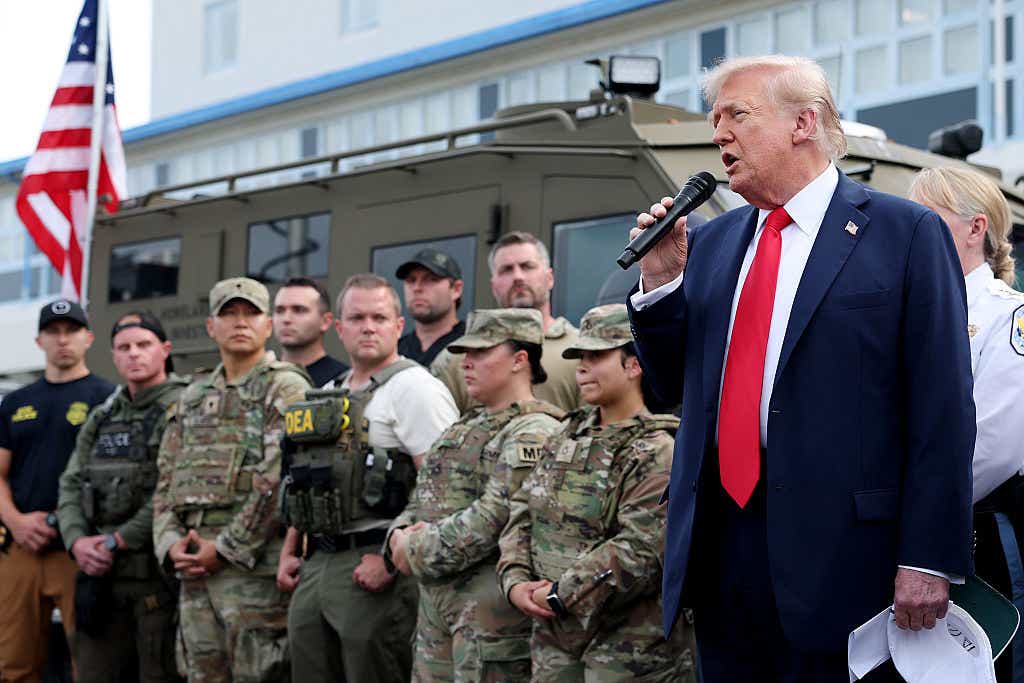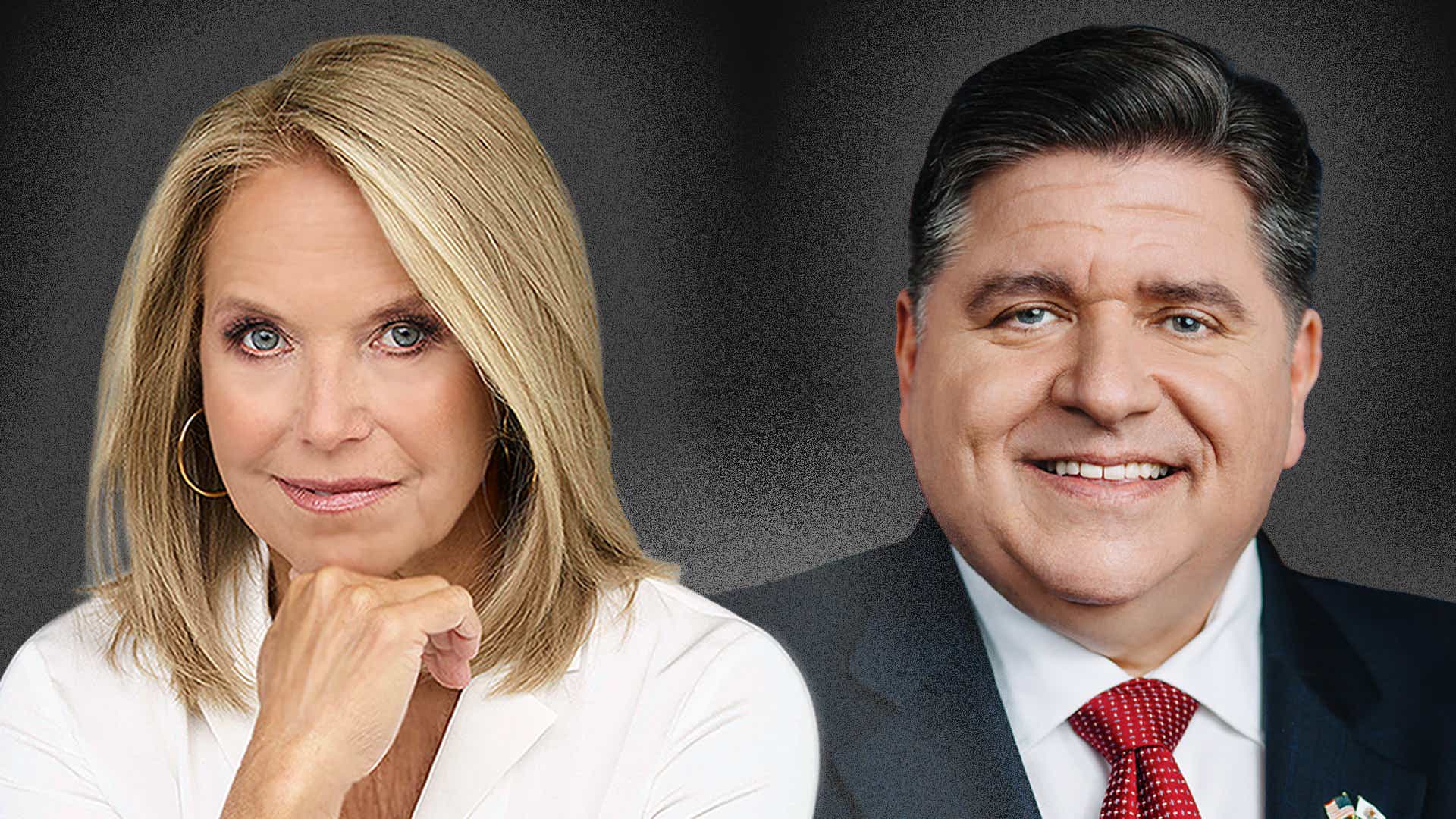President Donald Trump says he wants to send more National Guard troops into big cities like Chicago to curb violence and protect public safety. But Illinois Gov. JB Pritzker told Katie Couric that this plan isn’t really about crime — it’s about conditioning the public.
“The short-term aim is to get everybody comfortable with the idea that American troops could be in American cities,” he tells Katie. “It’s unconstitutional. It’s un-American.”
The Trump administration hasn’t offered much clarity on what a National Guard presence in the Windy City would actually look like — or if it will even happen. (Trump has also floated New Orleans as another target.) Pressed on Tuesday about his earlier vow to send troops, Trump doubled down: “We’re going in,” he told reporters, though he quickly added, “I didn’t say when.” A day later, Vice President JD Vance tried to tamp things down, saying there were “no immediate plans” for a deployment.
Still, Pritzker said Wednesday at a press conference that state officials have been told the Guard will be “assembled, ready to go” by Friday, with ICE ramping up operations in the city beginning the following day. And in another move that raised eyebrows, the Pentagon cleared Naval Station Great Lakes for ICE operations targeting undocumented immigrants. That same base could also be used as a staging ground for National Guard or even active-duty troops if Trump orders a surge — something he’s already done this summer in Los Angeles and Washington, D.C.

In response to such moves, Pritzker has called the plan “nefarious,” arguing that the use of ICE is really about intimidation.
“What they’re trying to do is scare people and entire communities,” he told Katie, warning it could provoke violence. “If you care about the future of the country and see immigrants — your neighbors and friends — being abused on the streets, it’s natural to want to protect them. But if you interfere, you can be arrested.”
So what’s Pritzker’s plan? Illinois, he says, is ready to fight in court. And if that doesn’t work, he’s calling on residents to document what’s happening and make their voices heard — on the streets and at the ballot box.
“People need to show up and actually express themselves,” he said, adding, “we’re going to do everything we can at the local level to protect the vote in Illinois.”
But he stopped short of endorsing the kind of aggressive redistricting plans recently pursued in states like California and New York in response to Texas's move. “This is not something I think the country should be doing — this kind of mid-decade stealing of districts that Donald Trump is trying to push,” Pritzker told Katie. “We should stop that at all costs. Meanwhile, if he goes down that road, and it spreads beyond Texas and California, then we’ll obviously have to stand up for democracy and do whatever it takes. Illinois doesn’t have any legal bars to redistricting, but I don’t think it’s proper for states to use that power.”
His comments highlight a larger divide among Democrats: While some argue that matching Trump’s tactics may be necessary to preserve power, others like Pritzker warn it would undermine the party’s broader claim to defend democratic norms. Instead, the Illinois governor said he’d like to see a a federal law establishing independent commissions that would take redistricting out of the hands of partisan legislatures, with the aim of curbing gerrymandering nationwide.
Want to hear more about how he’s responding to Trump’s attacks on Chicago — and if he’s considering a run for president? Check out the full interview below.









